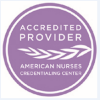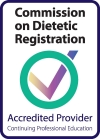CONFERENCES and WORKSHOPS
The MacDonald Center for Obesity Prevention and Education (COPE) is pleased to sponsor conferences and workshops.
PAST CONFERENCES AND WORKSHOPS
NUTRITION FUTURE FORWARD: ARE WE READY FOR OUT OF THE BOX THINKING?
March 6 2020, 9AM - 4PM
Driscoll Hall Auditorium, Villanova University
This COPE continuing education symposium takes a contemporary look at targeted health and nutrition topics that will challenge you to rethink-and refine-conventional practice while opening doors to fresh ideas. Picky eaters, craft beer use in healthy recipes, digestive wellness, culinary literacy, preventing metabolic adaptation during weight loss and the potential health and nutrition implications of cannabis use… forward-thinking, transformative topics that build upon foundational knowledge while equipping you with new skills and knowledge to best meet clientele and patient needs.
TOPICS & SPEAKERS
At the Table with Trillions: Evaluating Dietary Recommendations from a Gut Microbiome Perspective, Presented by Corrie M. Whisner, PhD
Preventing Metabolic Adaptation During Weight Loss, Presented by Todd Miller, PhD, CSCS*D, TSAC-F, FNSCA; and Stephanie Mull, MS, RD, CSSD, CSCS
Culinary Nutrition or Culinary Medicine: A Distinction with a Difference?Presented by Rosemary E. Riley, PhD, LD
Appetite & Weight Management: The Impact of the Endocannabinoid System & Cannabis, Presented by Laura Lagano, MS, RDN, CDN
AFRIDS (Avoidant Food/Restrictive Intake Disorder) and the New Picky Eater: Why repetitive food presentation and hiding does not work and what to do instead, Presented by Kelly Dorfman, MS, LDN
Craft Beers: Sustainability in Healthy Kitchens, Presented by Libby Mills, MS, RDN, LDN, FAND
LEARNING OBJECTIVES
1. Discover practical and specific ways to promote a healthy gut microbiome within the context of the Dietary Guidelines.
2. Discuss challenges and opportunities that exist when using cooking interventions to answer research questions.
3. Describe methods of assessment used in designing a nutrition and fitness plan that fuels activity and preserves lean body mass.
4. Learn about cannabis and various cannabinoids demonstrating clinical relevance in numerous health conditions and their nutritional implications.
5. Identify neurological issues in children that can impact sensory and oral motor development and manifest as avoidant and picky food behavior.
6. Develop innovative flavor profiles in everyday dishes by using beer as an ingredient to enhance healthful cooking techniques and recipes that will inspire home cooking.
ACCREDITATION
The Villanova University M. Louise Fitzpatrick College of Nursing is accredited as a provider of continuing nursing education by the American Nurses Credentialing Center Commission on Accreditation. By attending this entire conference Nurses can earn up to 6 contact hours.
The Villanova University M. Louise Fitzpatrick College of Nursing Continuing Education/MacDonald Center for Obesity Prevention and Education (COPE) is a Continuing Professional Education (CPE) Accredited Provider with the Commission on Dietetic Registration. By attending this entire conference Dietitians and DTRs can earn up to 6 CPEUs.
_______________________________________________________________________

An Interdisciplinary Approach to Caring for Patients Taking Medical Marijuana
June 6, 2019, 8:45 am - 4:00 pm
Driscoll Hall Auditorium, Villanova University
To accommodate professional schedules, we are providing Virtual and On Campus Conference options, each with Continuing Education credit available for each paid registrant:
- Virtual Conference:
$79 per registrant
Register - On Campus Conference:
$99 Villanova Faculty/Staff/Student; $120 General Admittance
Register
OVERVIEW
The subject of medical marijuana has become important for practitioners in all disciplines to have awareness. Its use within hospitals and health systems have become critical to manage, and clinicians must have a working knowledge of what to expect when patients are in their care while on medical cannabis. This day-long conference will educate clinicians in various disciplines – nursing, medicine, pharmacy, social work, and nutrition – to expand their knowledge base and ability to safely treat and manage patients from pediatrics to geriatrics. Explore the legal ramifications while caring for patients who have been certified to use cannabis products.
It is not the role of this conference nor the sponsors to debate or have opinions on whether or not the role of marijuana within medicine is appropriate; rather, the conference will focus on the role of the clinician in providing safe, legal, and informed care to patients taking these products under the certification of an approved provider.
Participants will
- Define and differentiate the types of cannabis that exist in regard to pharmacokinetics, side effects and drug-drug interactions.
- List the forms of cannabis used within the medical marijuana guidelines in Pennsylvania.
- Recite the role of the dispensary and explain the process for obtaining medical marijuana.
- List the disease states appropriate for cannabis certification in Pennsylvania.
- Discuss the nutritional challenges that may arise with patients who take medical cannabis.
- Review the role of the social worker as a counselor and liaison between patients and other institutions.
- Discuss legal issues that may arise while providing care for patients on medical cannabis.
SPEAKERS
- Michael Campbell, Professor of Law; Director of Clinical Programs; Director, Interdisciplinary Mental and Physical Health Law Clinic; Villanova University Charles Widger School of Law
- Molly E. Collins, MD, Department of Hematology/Oncology, Fox Chase Cancer Center, Temple Health
- Lisa Diewald, MS, RD, LDN, Program Manager, MacDonald Center for Obesity Prevention and Education, Villanova University M. Louise Fitzpatrick College of Nursing
- Greg Garber, MSW, LCSW, Director Patient Support Services, Neu Center for Supportive Medicine and Cancer Survivorship, Sidney Kimmel Cancer Center
- Chosen Lee, Pharm D, Medical Cannabis Dispensary Pharmacist, Cure Pennsylvania
- Jennie E. Ryan, PhD, CPNP-AC, Research Fellow, Department of Systems, Population and Leadership, University of Michigan School of Nursing
- Christine Roussel, PharmD, BCOP, Director of Pharmacy, Doylestown Health
ACCREDIDATION & CONTACT HOURS
Villanova University M. Louise Fitzpatrick College of Nursing Continuing Education/MacDonald Center for Obesity Prevention and Education (COPE) is a Continuing Professional Education (CPE) Accredited Provider with the Commission on Dietetic Registration. By attending this entire conference, Dietitians and DTRs can earn up to 5.75 CPEUs.
Villanova University M. Louise Fitzpatrick College of Nursing is accredited as a provider of continuing nursing education by the American Nurses Credentialing Center Commission on Accreditation. By attending this entire conference Nurses can earn up to 5.75 contact hours.
This knowledge-based program is acceptable for a total of 5.75 hours of Continuing Education credits (.575 CEU) for pharmacists in states that directly recognize ACPE providers. ACPE Credits will be awarded and submitted for all pharmacist attendees who sign in, complete the evaluation forms, successfully complete the post test at the conclusion of the seminar and submit their NABP ePID and DOB verifier (MMDD). Attendees must dispute missing ACPE credits within 45 days from program date.
Food Security: A Human Right, Not a Privilege
Co-hosted by the MacDonald Center for Obesity Prevention and Education and the Center for Global and Public Health

Leaders in Philadelphia region non-government organizations that support vulnerable populations in the area of hunger and food insecurity through distribution of social service and food resources and the operation of emergency food centers will describe innovative ways to incorporate wellness and community-building into their overall programs.
Objectives:
1. Develop understanding of how threats to food security undermine public health.
2. Examine opportunities for food programs to comprehensively promote wellness and community.
Speakers:
Wendy Gaynor
Director of Food Security Initiatives
Chester County Food Bank
Talk title: The Right to Food Access for All
Patrick Walsh
Pantry Manager
Martha¹s Choice Marketplace of Catholic Social Services, Montgomery County
Eli Wenger
Assistant Pantry Manager
Martha¹s Choice Marketplace of Catholic Social Services, Montgomery County
Walsh and Wenger talk title: Welcome To What We’ve Already Known: The Ongoing Public Health Crisis Of Hunger; What We Can Do And Addressing The Obstacles Of Doing More.


Healthy decision making is driven by many factors - psychological, environmental, social and behavioral – which ideally work together to produce an optimal environment conducive to positive health outcomes. But the science behind how we eat and which environmental and behavioral influencers affect our daily food decisions involves a complicated interplay of these factors. Join us and hear from experts in the field that will enlighten, surprise and teach you the latest evidence-based research on new approaches and relevant policies that promote healthy living.
Objectives:
1. Examine how to create environments, including work environments, to produce better health outcomes.
2. Identify social and behavioral mechanisms that lead to optimal health behaviors.
3. Challenge prior behavior change paradigms by presenting innovative strategies may improve adherence to lifestyle change interventions.
Pricing:
Full-day CE credit (4.25 contact hours, CPEUs): $89 ($99 on-site registration)
Early bird by October 1, full day with CE Credit: $79
Current VU staff, faculty, and students with CE credit: $69
Current VU staff, faculty, and students without CE credit: $49
Speakers and Topics:
KEYNOTE speaker:
Kelly D. Brownell, Ph.D.
Director, World Food Policy Center
Robert L. Flowers Professor of Public Policy
Duke University
Bridging the gap between research and policy: Using strategic science to create policy change with real impact.
Julie O'Brien, Ph.D.
Principal, Better Living & Health
Center for Advanced Hindsight, Duke University
Achieving behavioral change: Why standard approaches don't work and what we should do instead
Alice S. Ammerman DrPH
Director, Center for Health Promotion and Disease Prevention
Kaufman Distinguished Professor, Department of Nutrition
Gillings School of Global Public Health and School of Medicine
University of North Carolina at Chapel Hill
Good Bowls: A social venture to make healthy decision making easier and more impactful
Ray Fabius MD
Co-Founder of HealthNEXT
Creating a culture of wellness: Building the case for a healthy workplace
Slides for speakers' presentations
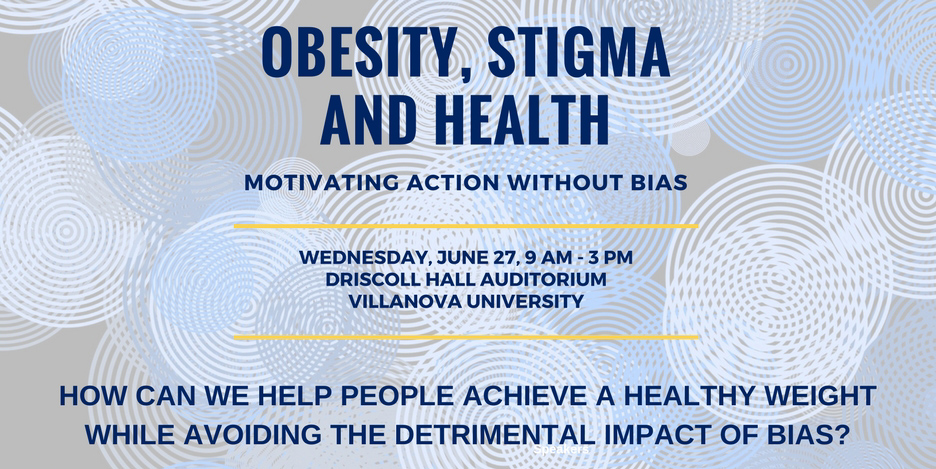
Speakers:
Nicholas Frye, MS, LCPC, NCC Jennifer Christman, RDN, LDN, CPT Behavioral Counseling Manager Clinical Nutrition Director
Medifast/Optavia Medifast/Optavia
Description:
Weight stigma can lead to depression, anxiety, social isolation, and prevent individuals from seeking health care. People with obesity are at increased risk for many serious diseases and health conditions. So, how can we help people achieve a healthy weight while avoiding the detrimental impact of bias?
Join us for this highly interactive workshop where you will learn practical skills that can be applied immediately in any health or wellness practice. During the program enjoy demonstrations and discussions, and engage in hands-on application of weight stigma-sensitive coaching and counseling combined with motivational interviewing to help your clients make healthy behavioral changes.
Objectives:
1. Describe weight stigma and its detrimental effects.
2. Discuss the medical and public health models of obesity and how they can be used in formulating counseling approaches.
3. Practice stigma-sensitive counseling and motivational interviewing skills to help clients move towards healthy behavioral changes within any environment.
Price:
Early Bird (before June 1st) and group (3 or more) rate: $79 per person
Regular rate: $89
VU Faculty/Student rate: $69
Continuing Education Credits:
4.5 CPEUs for dietitians.
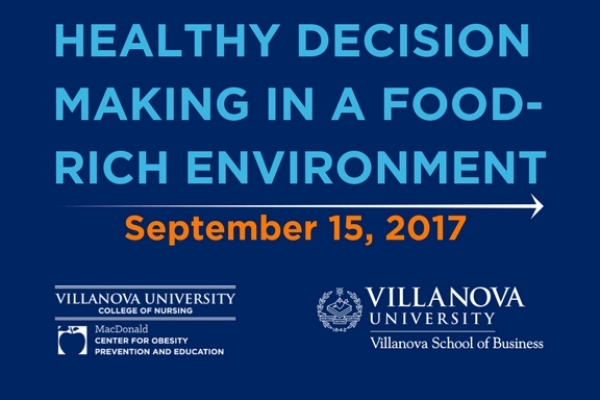
COPE and Villanova School of Business (VSB) hosted a one-day interactive and engaging conference that paired the evidence-based research on mindfulness and mindful eating techniques used in a healthcare/clinical setting with consumer behavior research on food policy and environment’s impact on food choice.
Created for nurses, nurse practitioners, dietitians, health coaches, business professionals and policy experts, the two-part conference included The Mind-Environment Connection: Using Mindfulness to Promote Healthy Choices and Eating in Context: Perspectives on the Consumer, the Context, and Policy Drivers of Food-related Decisions.
Check out our Op-Ed piece highlighting our conference, published in Morning Consult, written by Rebecca Shenkman MPH RDN LDN and Beth Vallen PhD
Op-Ed: A New Approach to Combat America's Obesity Epidemic
Video Recording
Speaker 1: Click here to view Susan Stabler-Haas' presentation.
Speaker 2: Click here to view Cheryl Harris' presentation.
Speaker Slides
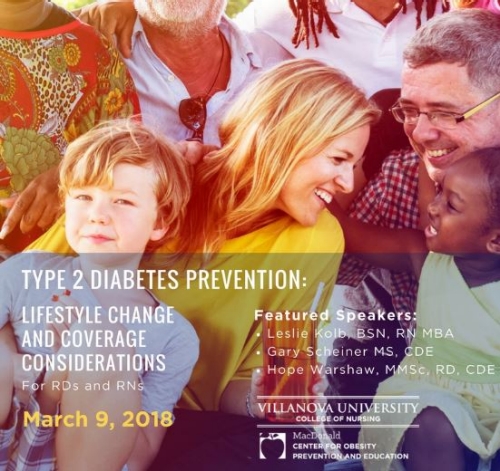
This conference will provide an overview of the growing and compelling evidence base for Type 2 diabetes prevention or delay, update practitioners on the latest medications, diet and lifestyle modifications, including physical activity, that form a sound strategy for reversing the alarming trends in prediabetes and Type 2 diabetes prevalence. In addition, guided by experts in the field, practitioners will participate in interactive case studies to hone their skills in diabetes prevention and will hear from a panel of successful weight loss maintainers about their individual journeys and secrets to losing and maintaining a healthier weight, while achieving long term reductions in HgA1c. To leverage these prevention strategies in clinical practice and communities, a review of the National Diabetes Prevention Program research, CDC recognition standards and reimbursement landscape, the brand new Medicare Diabetes Prevention Program (MDPP) launch and requirements will also be discussed. Opportunities for DSMES programs and diabetes educators to house their own DPP program will be presented, along with ample resources and support.
Learning Objectives:
- Detail the 30 years of global research on the prevention and/or delay of type 2 diabetes.
- Identify the research conducted to date on the use of glucose lowering medications and incorporation of physical activity to prevent and/or delay type 2 diabetes.
- Challenge and/or reinforce HCP strategies, tools, and techniques to support clients in their weight management/healthy lifestyle efforts through a panel discussion using an interview format with successful “losers” and HCP counselors/coaches.
- Explain the evidence base for the Centers for Disease Control and Prevention (CDC)'s National Diabetes Prevention Program (National DPP)
- Discuss the Medicare Diabetes Prevention Program requirements
Speakers:
Hope S. Warshaw, MMSc, RD, CDE, BC-ADM, FAADE
Leslie E. Kolb RN, BSN, MBA
Gary Scheiner MS, CDE
Slides to print for conference
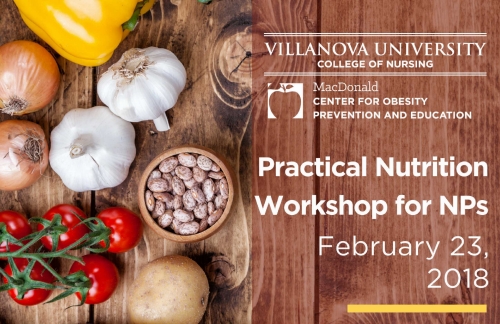
Building a united healthcare team, with nurses on the frontlines of care, can help bridge the gap in the nutritional care management of patients. Health professionals are beginning to recognize the need and opportunities for collaboration and integration of clinical care and community systems to prevent and mitigate obesity and other nutrition-related disease states. This workshop is designed as an inter-disciplinary program to educate the target audience of Nurse Practitioners. This program will address the benefits of working inter-professionally with Registered Dietitian-Nutritionists (RDN) and NPs to address obesity and other nutrition-related disease states to achieve results that cannot be achieved by a single health professional. This approach addresses the education gap of nutrition management that integrates partners in evidence-based health care delivery.
Learning Objectives:
1. Review the epidemiology and current state of the obesity epidemic.
2. Discuss strategies to minimize bias towards and discrimination against people with obesity.
3. Explain the skills and competencies of other health professionals – i.e., dietitians – necessary for effective inter-professional collaboration and integration of clinical and community care for obesity and other nutrition-related disease states.
Speakers and topics:
Lisa Diewald, MS RDN LDN, Tracy Oliver, PhD RDN LDN, & Rebecca Shenkman MPH RDN LDN
Obesity Stigma and Sensitivity Training
Erin Caroulis, MPH, RD, LDN, CDE
Diabetes Nutrition for the Nursing Professional
Andrea M. Barnes, MS, RD, LDN, FAND
Geriatric Nutrition Recommendations for the Continuum of Care
Audrey Caspar-Clark, RD, LDN, CSO
Nutritional Issues in the Cancer Patient
Sharon H. Hangliter MS, RD, CNSC, LDN
Clinical Nutrition: Dispelling Myths, Embracing Realities
Agenda, Presenter Slides and Resources to Print
For more information on past or future COPE events, contact Rebecca Shenkman, COPE Director at rebecca.shenkman@villanova.edu or 610-519-5931.
Villanova University M. Louise Fitzpatrick College of Nursing is accredited as a provider of nursing continuing professional development by the American Nurses Credentialing Center’s Commission on Accreditation.
Villanova University M. Louise Fitzpatrick College of Nursing Continuing Education/MacDonald Center for Obesity Prevention and Education (COPE) is a Continuing Professional Education (CPE) Accredited Provider with the Commission on Dietetic Registration.


